Key cultural events of the year for Russia
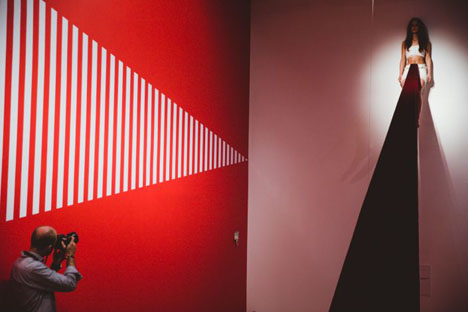
The 'Do it' project took place in Moscow Garage gallery this year. Source: Press photo
The opening ceremony of the Olympics
The opening of the 2014 Winter Olympic Games on Feb. 7 in Sochi showed the world a new Russia. The theatrical performance "Dreams of Russia" became the most advanced technological spectacle in the history of the Olympics. It narrated the history of the country and its principal cultural milestones, starting with sketches of Ancient Rus set to Stravinsky's The Rite of Spring and Borodin's Polovtsian Dances and of the golden 19th century, recreated by motifs from War and Peace, to the birth of the Russian avant-garde and constructivism, and then the contemporary age. "Nas Ne Dogonyat" (“Not Gonna Get Us”) - an international pop hit in the early 2000s for the Russian duo t.A.T.u., was chosen to be the anthem of the Russian Olympic team.
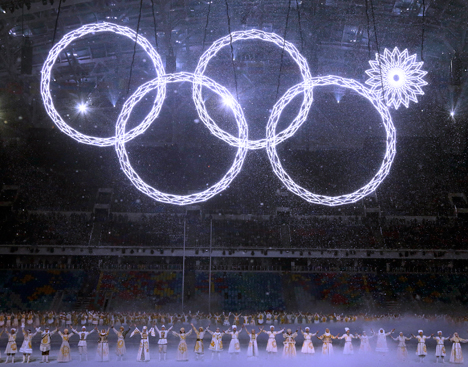
Source: AP
‘Leviathan’ by Andrei Zvyagintsev
Leviathan is the principal Russian film of the year. Having received the Cannes prize for the best screenplay and a Golden Globe nomination, the film is now on its way to the Oscars. It has been a long time since Russia has been able to present the French Academy with a competitive film. Andrei Zvyagintsev is the successor to Soviet directing legend Andrei Tarkovsky, who patented the slow and profound style of Russian art house cinema. The paradox of Leviathan is that, while it is a serious social drama with biblical allusions, it is also a comedy in which the director satirically analyzes life in the Russian heartlands.
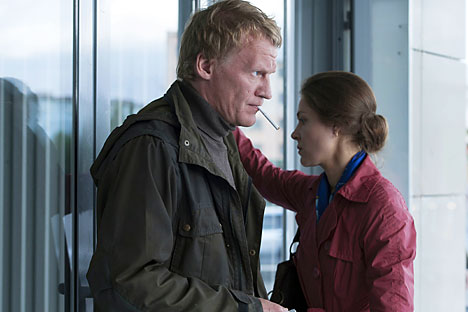
Source: Photoshot/Vostock-Photo
Scythian gold
At the time of Crimea’s sudden ‘accession’ to the Russian Federation, the Scythian gold collection from the peninsula's museums (ancient gold sculptures, decorations and armor, totaling 500 exhibits) was on show in Amsterdam. As a result of the political conflict, the Dutch museum encountered a problem: Should it return the collection to the Ukrainians, with whom they organized the exhibition, or return the gold exhibits to the Crimean museums?
As of today, a small part of the exhibits has been returned to Kiev, but month after month the Dutch government has been postponing the decision regarding the main part of the collection. In November the Crimean museums filed a lawsuit with an Amsterdam court on the return of the treasures. If the court's decision is not in Crimea's favor, it will turn to UNESCO. It is absolutely impossible to predict the outcome of this legal battle - it has no precedents.
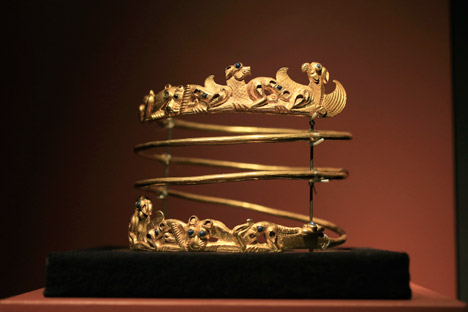
Source: AP
The 250th anniversary of the Hermitage
On Dec. 7, 2014 Russia celebrated the 250th anniversary of the country's most important museum, the State Hermitage Museum in St. Petersburg. The celebration, in fact, had lasted all year. In the summer and fall the museum hosted the largest European modern art biennale, Manifesta 10. In November, during the "Revived Paintings" costume ball, revived characters from famous paintings, played by actors, singers and ballet soloists, acted out the scenes on the Hermitage stage.
The Hermitage celebrated its birthday on a grand scale. On Dec. 7, Palace Square in St. Petersburg hosted an enormous laser show dedicated to the museum's history in the context of the history of Russia and St. Petersburg. Travel website Tripadvisor gave the Hermitage an excellent gift: In its annual rating the site's users voted the Hermitage as the best museum in Europe.
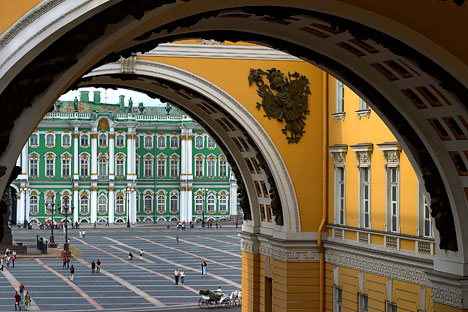
Source: Aleksander Petrossian/Hermitage
100 years since the beginning of World War I
The war was a major blow for the country. Firstly, Russia suffered great casualties (the highest number of deaths among all the countries that participated). Secondly, WWI was the platform on which the Russian peasantry and working class gave vent to their anger, which led to the 1917 Revolution.
The Soviet government called this war "imperialistic" and systematically removed it from people's memories. In 2014 the Russian government paid homage to the greatest tragedy in the country's history. In August a WWI Museum was opened near St. Petersburg. It exhibits rare items such as uniforms, medals, weapons, documents and the soldiers' and officers' personal belongings. The Russian State Museum held an exhibition of paintings on the subject of WWI and in Moscow the Multimedia Art Museum hosted a large interactive exhibition dedicated to the anniversary.
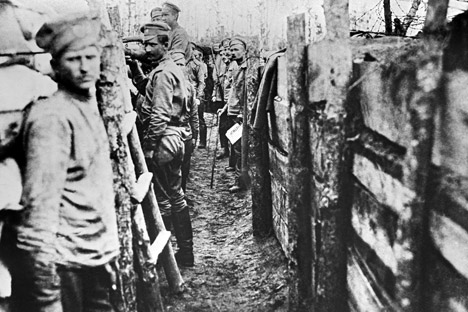
Source: RIA Novosti
All rights reserved by Rossiyskaya Gazeta.
Subscribe
to our newsletter!
Get the week's best stories straight to your inbox